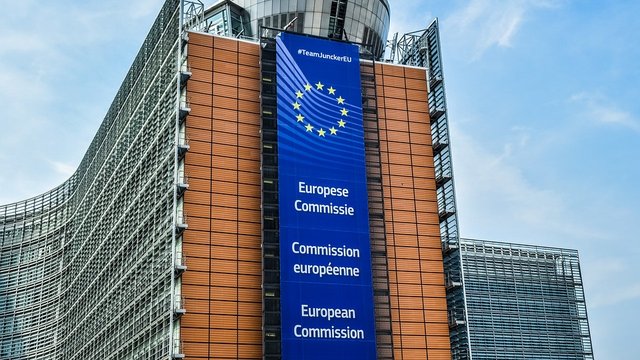Multi-agency Donor Coordination Platform for Ukraine at first meeting in person discuss financing in 2024, Ukraine Plan

The 6th Steering Committee of the Multi-agency Donor Coordination Platform for Ukraine met in person in Brussels to discuss Ukraine’s financing needs beyond 2023 as well as its vision for recovery, reconstruction and modernisation and the absorption capacity of donor financing for 2023 rapid recovery needs and project implementation, according to a press release from the European Commission following the meeting.
"We rely on our partners, in particular within the framework of the Platform, to cover social and recovery expenditures. The budget deficit for 2024 is estimated at about $43 billion," in turn, the words of Finance Minister Serhiy Marchenko are quoted in a press release Ministry of Finance of Ukraine after the meeting.
The European Commission said that following the proposal of the 2024 state budget, the Government of Ukraine outlined its budgetary and rapid recovery needs beyond 2023. It also informed the Steering Committee members on the progress with the absorption of donor financing for 2023 rapid recovery needs and project implementation. In this context, the Steering Committee agreed on the need to support Ukraine in this process going forward, including with possible technical assistance and advisory support.
In addition, The Government of Ukraine, the Commission and the International Monetary Fund updated the Platform Members on Ukraine's progress in implementing the four-year $15.6 billion Extended Fund Facility (EFF) and reforms essential to Ukraine's economic future, and the Platform members discussed ways to support Ukraine in its reform plans.
The Government of Ukraine presented the work ongoing on the Ukraine Plan, a medium-term growth strategy for the country, which will be supported by the EU four-year EUR 50 billion Ukraine Facility initiative. It has four main goals, notably to provide a coherent roadmap for Ukraine's reforms and investments, boost growth potential, help rebuild and modernize, facilitate EU accession, and strengthen macro-financial stability.
"The Steering Committee discussed the possibility of using the Ukraine Plan as a point of reference for coordinated donor support and reform/investment roadmap," the European Commission said.
The Steering Committee exchanged views on the Ukraine Plan – a key medium-term document and the continuation of the implementation of key reforms: anti-corruption, public procurement, public-private partnership, construction, regional development, the rule of law and others, the documents say.
The meeting was opened by the country with G7 Presidency, co-chaired by Director-General of the European Commission for Neighbourhood and Enlargement Negotiations Gert Jan Koopman, together with the Deputy Prime Minister, Minister for Communities, Territories and Infrastructure Development of Ukraine Oleksandr Kubrakov, and White House Deputy National Security Advisor for International Economics Michael Pyle. The event was also attended by Marchenko, First Deputy Prime Minister, Minister of Economy of Ukraine Yulia Svyrydenko and U.S. Special Representative for Ukraine's Economic Recovery Penny Pritzker.
"We need to continue looking closely at Ukraine's capacity to absorb and implement donor financing for 2023 & beyond. Strengthening public finance, investments planning, & public administration capacity is key. Good to see donors are broadly aligned on reform priorities," Koopman said on Twitter.
He noted his satisfaction with the discussion on the latest developments regarding the Ukraine Plan, a vision for recovery, reconstruction and modernisation.
"Reforms to strengthen the business environment are essential to Ukraine's economic future!" the representative of the European Commission said.
As reported, the Multi-agency Donor Coordination Platform for Ukraine was launched on January 26, 2023 at the first meeting of the Steering Committee. It brings together senior officials from Ukraine, the EU, G7 countries, as well as partners from international financial institutions, in particular the European Investment Bank, the European Bank for Reconstruction and Development, the International Monetary Fund and the World Bank, to coordinate efforts to meet Ukraine's financial needs in both the short-term, and in the medium term.








